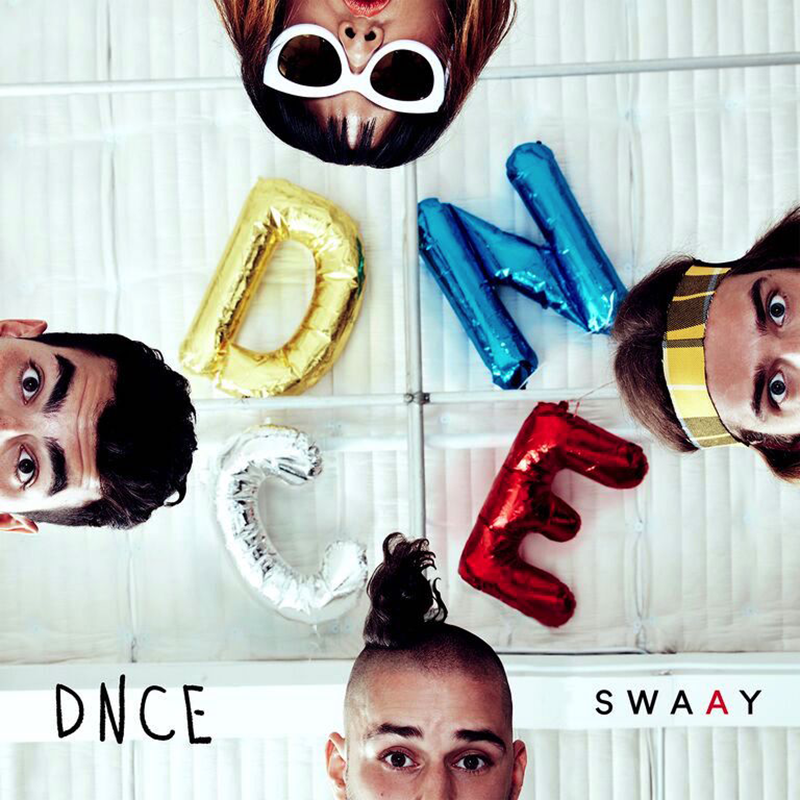DNCE’s self-titled debut album, set to be released on Nov. 18, is an upbeat expression of shameless individuality and optimism, fitting for the emergence of a band comprised of Joe Jonas and other artists who already have accomplished musical careers. Each member has experienced both success and letdown in the form of a band break-up or a lack of independent performance apart from the backgrounds of other artists’ tours. DNCE reveals a new wave of inspiration, with dance music that departs from today’s standard styles.
The new album features tracks from DNCE’s first EP, SWAAY (2015), including “Toothbrush” and the double-platinum “Cake by the Ocean.” The latter is an embodiment of DNCE’s exterior identity: quirky, fun-loving and forward-focused. While the literal lyrics describe the feeling of meeting a new love interest, the inspiration for the tone is the drive towards new beginnings as DNCE dives full-force into the next chapter of each member’s music career. (Carisoprodol) The song isn’t just foreshadowing, it’s a promise to the world: DNCE is ambitiously striving to take the center stage of modern dance music.
As is common in the dance music genre, “Body Moves” focuses on present desire, but it departs from the carpe-diem philosophy with a suggestion of future promise: “when the morning comes, I’ll always stay.” From the title to the chorus, the song clearly focuses on physicality, but there is insistence upon emotional backing and authenticity. The instrumental retains nearly the same pattern for the duration of the song, concentrating on the beat with short breaks in between the verse, pre chorus, and chorus, increasing in intensity with each step.
DNCE opens their song “Blown” with a 90s pop-rock beat, a mix of popping electric keys and bass guitar. The opening lyrics are as bluntly honest as the instrumental is simple and choppy. The verse transitions with rising energy and intensifying guitar into a smooth, catchy chorus. The song features a rap interlude by Kent Jones, and although the rap corresponds to the song’s overall tone, the transitions to and from the interlude are sloppy and compromise the song’s flow, which might otherwise have been the strength of this track.
One song, “Good Day,” stands out from the electronic, sex-driven tracks that dominate the album as a more conversational and personal piece. The divergent track opens with an acoustic sound as DNCE plainly asserts, “today is gonna be a good day,” in spite of the problems and negativity that Joe Jonas describes immediately after. The lyrics make extensive use of internal rhyme as opposed to end rhyme, successfully unifying phrases without compromising the natural, conversational effect. The funky, continuous bass rhythm harmonizes the more monotonous verses and unifies the more dynamic portions of the song, changing only in volume to reflect the same energy as the vocals.
The album features DNCE’s own take on the love-the-way-you-hurt-me song motif. “Be Mean,” fulfills this with the twist of using the “torture” concept as an ironic metaphor for strenuous intrigue rather than an expression of emotional distress. Long, sweeping vocal and instrumental notes unify the dynamic melody, mirroring an internal conflict of desire so long-drawn, stagnant, and continuous that it feeds dynamic restlessness and suspense. The speaker further seeks to satisfy his desire at all costs, “Gladly I’d take poison from your lips / Touch you when I burn my fingertips.”
The album DNCE defines of the band’s intended character. The self-title fits, as the band expresses who they intend to become:positive, sexy, and quirky. Joe Jonas and his new bandmates are on a path to discover their style, as they experiment mixing steady vocals and electronic rhythms. If DNCE continues in this divergent trend, they have the potential to emerge from their trial period as representative of their own, distinct style of dance music.






